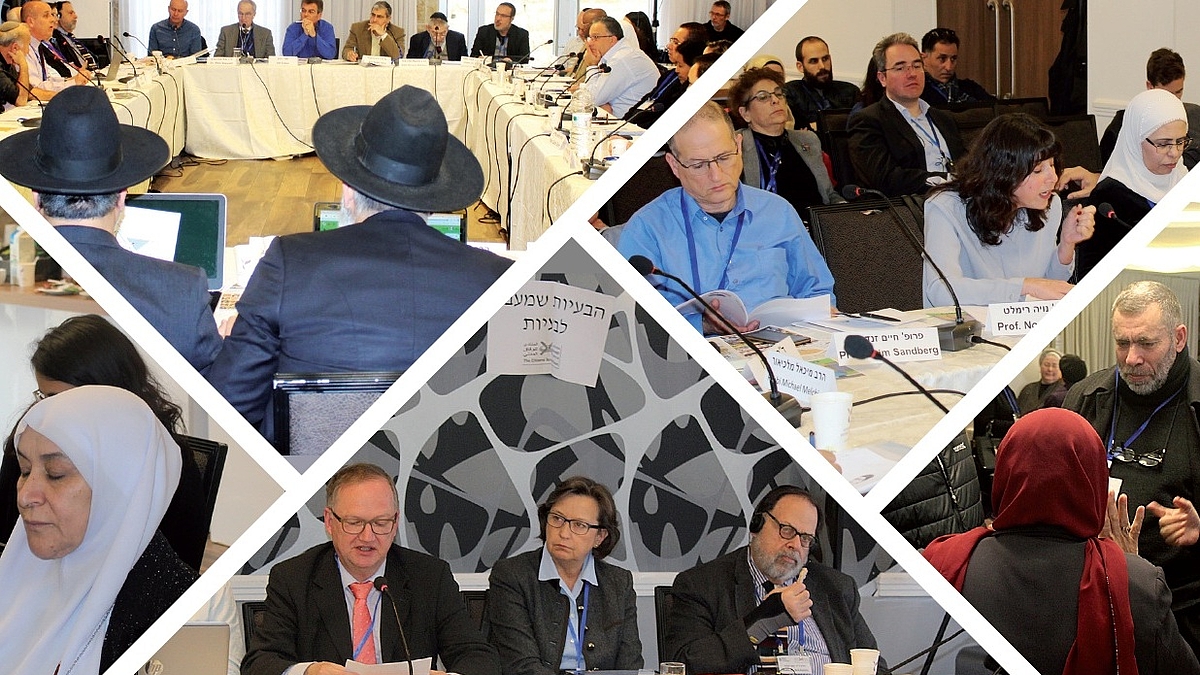Building a Common Public Sphere

Second International Round-Table Conference
How can Israel build a shared society in a sustainable democracy? This question has been at the forefront of our cooperation with our partner the Citizens' Accord Forum over the years. From February 17-18, 2019, representatives of various segments of Israeli society, Ethiopian Jews, Muslim religious leaders, Arab media and social leaders, religious Zionists, Ultra-Orthodox women and Rabbis, Arab women, social workers, and Knesset Members, all took part in our round-table discussion about an issue that affects every citizen of Israel, namely, the relation between Religion and State.
This issue was broken down into several sub-topics, each of which was discussed from a religious, political, legal and sociological point of view. The first round-table discussion dealt with the issue of gender segregation in Higher Education. After the opening remarks of Rabbi Melchior, the question about how to balance between competing values was discussed with Rabbi Prof. Yehuda Brandeis, from Herzog College, Rabbi Dr. Michael Abraham, from Bar-Ilan University, and with Qadi Abd al-Hakim Samara, President of the Sharia House of Appeal.
A further round-table discussion was on the subject of competing values in political systems as well as participatory government in a multicultural system. The round-table was chaired by Professor Asher Cohen from Bar Ilan University and by Dr. Gail Telsheir, from the Hebrew University. An interesting addition to the discussions was the contribution of our guests from Germany, such as Prof. Tove Hansen Malloy from the European Centre for Minority Issues, who presented ideas on participatory government, as well as Prof. de Wall, Chair for Ecclesiastical, State- and Administrative Law at the University of Erlangen, who introduced the German model of the separation between Religion and State.
The two-day vigorous and heated discussions brought to the foreground the shared values that different religions and political views have. Most of the participants expressed surprise at the overlap of fundamental values in each religion and political standpoint and agreed that there is a common ground on which to build a shared society in a sustainable democracy. They also agreed on the need of a balance of give and take, by overcoming the deep reluctance to address the trade-off essential to building a shared society.
